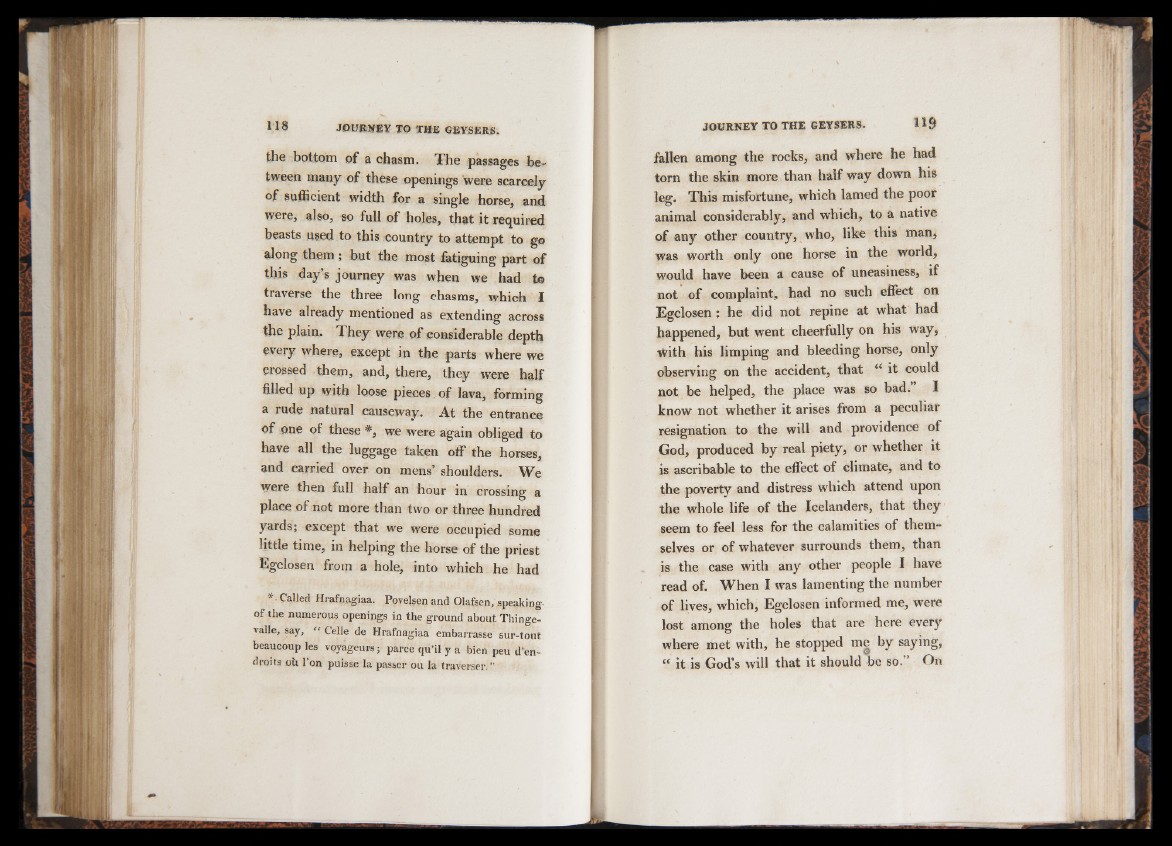
1'18 Jmmtst TO THE GEYSERS.
the bottom of a chasm. The passages between
many of these openings were scarcely
of sufficient width for a single horse, and
were, also, so full of holes, that it required
beasts used to this country to attempt to go
along them ; but the most fatiguing part of
this day’s journey was when we had to
traverse the three long chasms, which I
have already mentioned as extending across
the plain. They were of considerable depth
every where, except in the parts where we
crossed them, and, there, they were half
filled up with loose pieces. of lava, forming
a rude natural causeway. At the entrance
of one of these *, we were again obliged to
have all the luggage taken off the horses,
and carried over on mens’ shoulders. We
were then full half an hour in crossing a
place of not more than two or three hundred
yards; except that we were occupied some
little time, in helping the horse of the priest
Egclosen from a hole, into which he had
'* Called Hrafnagiaa. Povelsen and Olafsen, speaking
of the numerous openings in the ground about Thinge-
valle, say, “ Celle de Hrafnagiaa embarrasse sur-tout
beaucoup les voyageurs; parce qu’il y a bien peu d’en-
droits oh l’on puisse la passer ou la traverser, ”
JOURNEY TO THE GEYSERS.
fallen among the rocks, and where he had
torn the skin more than half way down his
leg. This misfortune, which lamed the poor
animal considerably, and which, to a native
of any other country, who, like this man,
was worth only one horse in the world,
would have been a cause of uneasiness, if
not of complaint, had no such effect on
Egclosen: he did not repine at what had
happened, but went cheerfully on his way,
with his limping and bleeding horse, only
observing on the accident, that “ it could
not be helped, the place was so bad. I
know not whether it arises from a peculiar
resignation to the will and providence of
God, produced by real piety, or whether it
is ascribable to the effect of climate, and to
the poverty and distress which attend upon
the whole life of the Icelanders, that they
seem to feel less for the calamities of themselves
or of whatever surrounds them, than
is the case with any other people I have
read of. When I was lamenting the number
of lives, which, Egclosen informed me, were
lost among the holes that are here every
where met with, he stopped me by saying,
<c it is God’s will that it should be so. On